Is education another commodity in the market?

Inflation caused by economic fallout from the Covid-19 pandemic and the Russia-Ukraine war, on top of income loss, poses a new challenge for those already struggling in the low- and middle-income categories. Added to their woes is the rising costs of their children's education.
Costs have jumped by 50-100 percent for school supplies and private tutoring, which have now become unavoidable for anxious parents concerned about their children's future. This newspaper recently raised the question: "Why are our schools failing to provide complete education to our children?" It urges the government to check the rising prices of school supplies and investigate if the hike in prices is caused by unscrupulous syndicates exploiting the ongoing inflation.
The important issue that must be discussed is whether school education should continue to be another commodity subject to the vagaries of the market. An alternative and more appropriate scenario is that school education of acceptable quality is recognised as an entitlement for all children, which the state is obligated to guarantee through public institutions or in collaborative arrangements with non-state providers. Although some components of the education system may take the form of commercial services, national pledges and international agreements require that school education not be regarded as a consumption item.
Article 17 of our constitution says that the state shall establish "a uniform, mass-oriented and universal system of education extending free and compulsory education to all children to such (a) stage as may be determined by law." A law was adopted in 1989 to provide free and compulsory primary education up to Class 5. Meanwhile, the global education goal under the Sustainable Development Goals (SDG) agenda requires that inclusive and equitable quality secondary education should be free and universal by 2030 – a goal Bangladesh has endorsed.
However, as of today, primary education is neither free nor really compulsory. Look at all the children who are not enrolled or are dropouts, and the various officially sanctioned and unsanctioned costs to parents, including the cost of private tutoring, because schools do not do their job properly. And there is no plan or target yet for achieving free and universal secondary education at least up to Class 10 by 2030.
The existence of three major types of schools in our system is divisive and runs along the social class line. The general Bangla medium schools, state-run and state-assisted, serve the low- and middle-income population; the madrasas – state-supported Alia and independent Qawmi – cater to the poor; and the English medium schools, the elite and mushrooming ones, low-quality "kindergarten" schools, are for the children of the rich and the relatively privileged. Students in these three types of schools may as well live and grow up on different planets, with their largely separate curricula, school experience, and ambitions in life.
The rising costs of living and education have hit all, but the hardest hit are students of mainstream Bangla medium schools, who make up two-thirds of the student population of about 40 million. Girls always become more vulnerable than boys when their families face a crunch, economic or otherwise.
The National Education Policy, 2010 recognised the divisive and inequitable character of our school system that stood as the barrier to building a progressive and modern society. Unfortunately, no real effort has been made to implement the education policy, which mandated building a unified and equitable school system with a common core curriculum, quality standards for all schools, and opportunities for all children, even if the variations in types of schools could not be eliminated.

The onus of creating an equitable school system of acceptable quality falls on mainstream Bangla medium schools, which are either directly run by the government or assisted by the government. This objective could be realised if these schools could be made largely free for students with minimal burden on their families, and if the quality of instruction in these schools, located in every neighbourhood, could make these the preferred choice of parents for their children, over madrasas or the English medium schools.
There has been mention of setting up quality schools in every ward of the Dhaka metropolitan area as part of the new Detailed Area Plan (DAP) to reduce traffic jams and make the city habitable. Obviously, controlling traffic cannot be the main rationale for having a quality school in every neighbourhood, and it cannot be just for the capital city. We have yet to hear of a mega-plan for building a nationwide network of neighbourhood schools in which children will be eager to be enrolled.
The larger question of building a K-12 school system consistent with the goal of an aspiring higher middle-income country and meeting the constitutional responsibility for children's education has remained confined to rhetorical statements by decision-makers. Concerned citizens and educators have spoken about a comprehensive national sector plan for education, revisiting the 2010 education policy in the context of 21st-century challenges. This effort could be guided by a permanent statutory education commission answerable to the public and the parliament, as recommended in the education policy.
Incidentally, the result of an exercise undertaken in 2020 at the behest of Unesco and the Global Partnership for Education (GPE) remains on the GPE website as a draft document. It has evinced little interest of the two education ministries in the country, even though their officials have participated in the exercise.
Meanwhile, children's education remains a tradable commodity, the costs rising with inflation, and subject to forces of market exploitation, which the government can do little to control. As a post-Covid education recovery measure, the government could provide some relief to beleaguered parents by providing financial assistance to all registered schools – government, government-assisted and private – to provide support for the students' educational supplies and extra lessons organised by schools, reducing the need for private tutoring. The government could also cap or eliminate various student fees. These measures have been recommended by the Education Watch and in education discourse as requirements of a learning loss recovery plan.
These necessary interim steps are not substitutes for addressing the larger question of an education sector plan reflecting medium- and longer-term aims and a good-faith effort to implement it. But for now, these will help the parents who are struggling to keep their children in school.
Dr Manzoor Ahmed is professor emeritus at Brac University, chair of Bangladesh ECD Network (BEN), and vice-chair of the Campaign for Popular Education (CAMPE). Views expressed in this article are the author's own.

 For all latest news, follow The Daily Star's Google News channel.
For all latest news, follow The Daily Star's Google News channel. 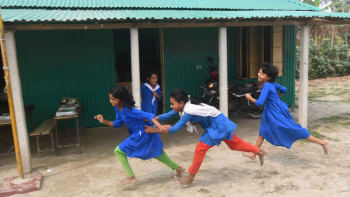

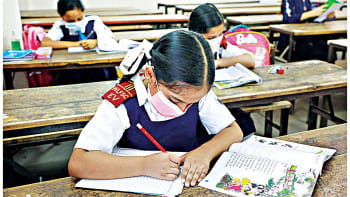



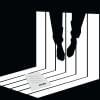

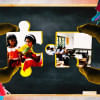


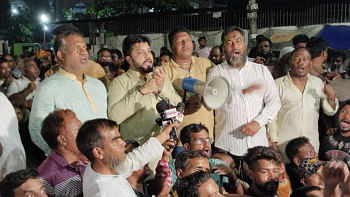
Comments